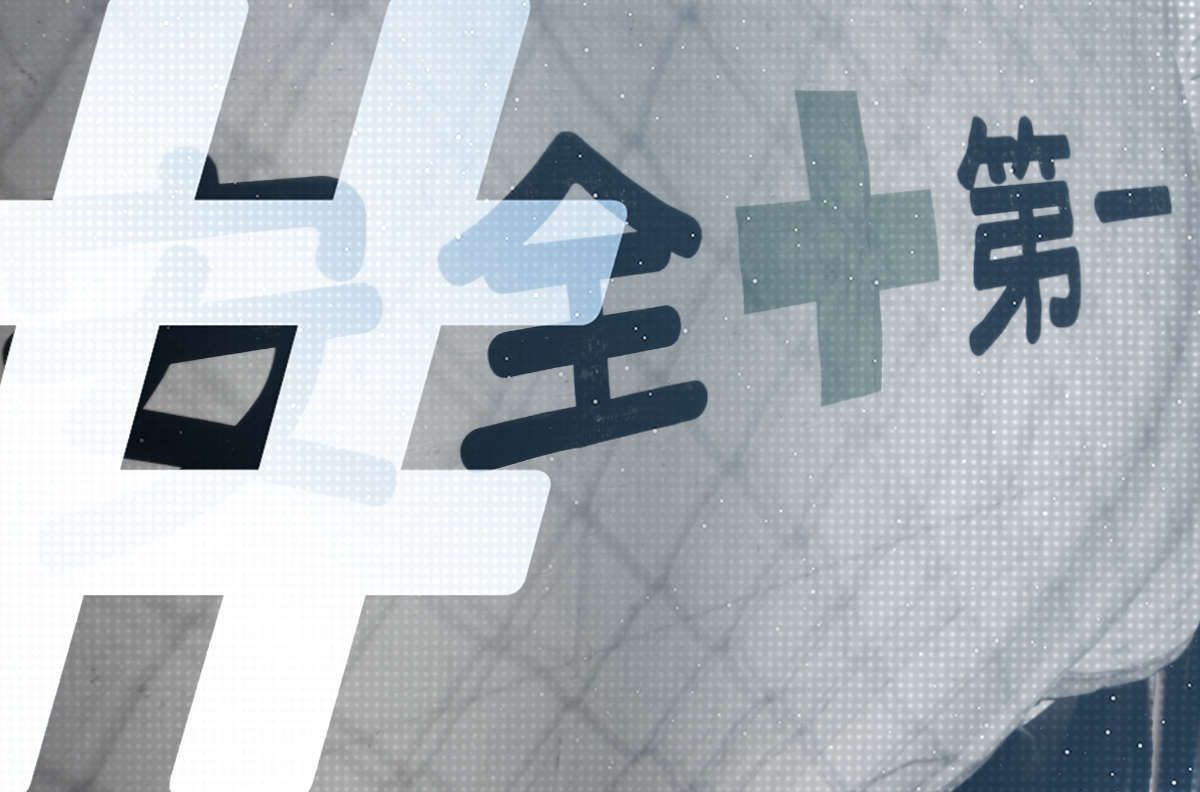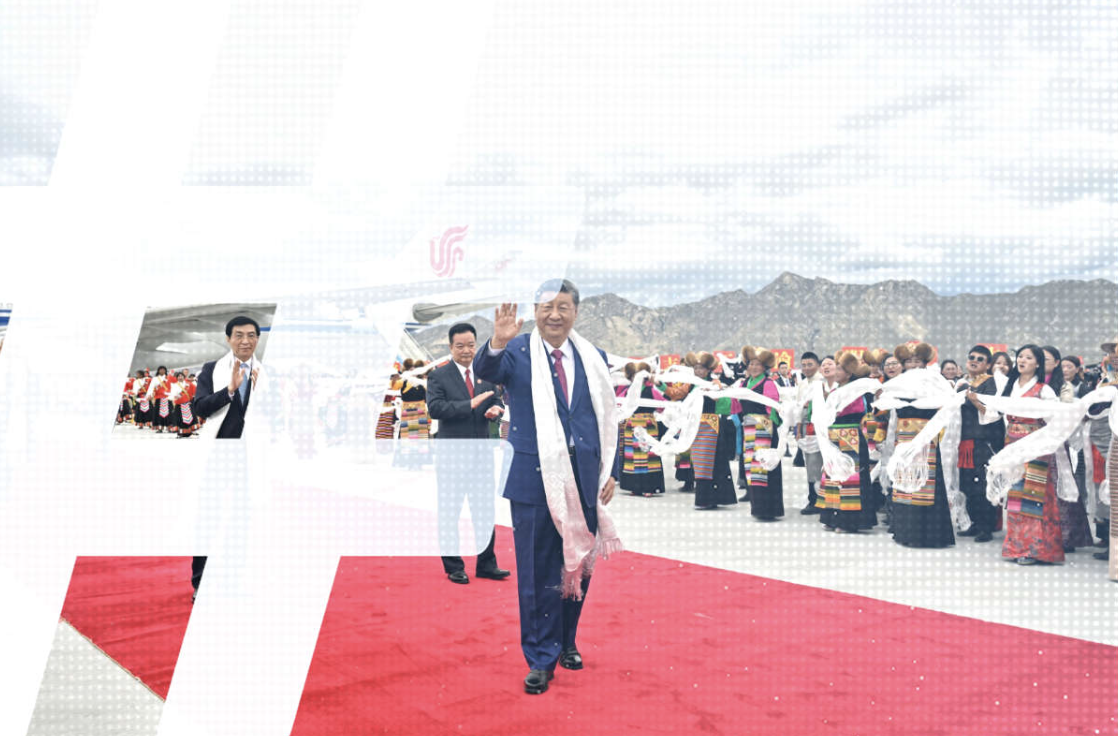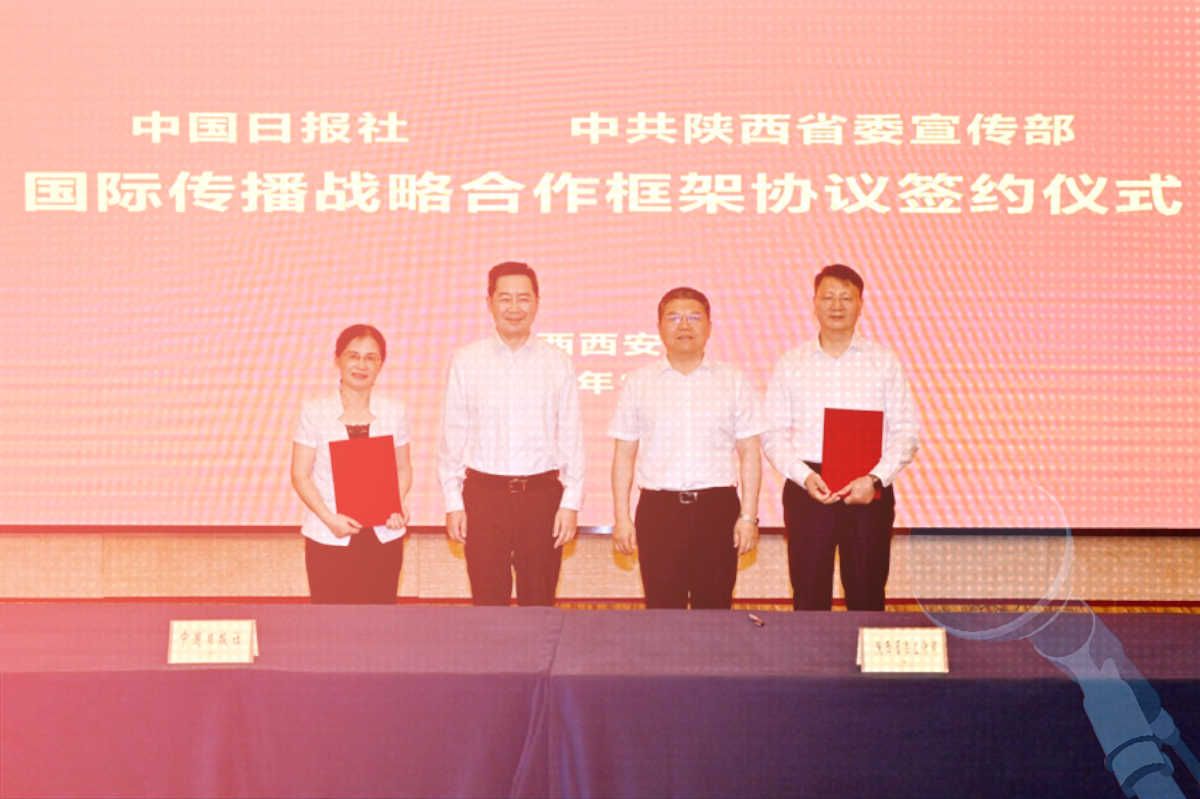Headlines and Hashtags
Coverage of Journalist’s Day continues: Southern Metropolis Daily marks major media events of 2006
More news appeared in Chinese newspapers today about China’s seventh annual Journalist’s Day — 58 articles in a database of over 180 newspapers. Especially notable for its unique voice was Southern Metropolis Daily coverage, which included an editorial mildly critical of the holiday and its own “keyword” list of major media events in China this year, including the FoxConn Case and Southern People Weekly reflection, before bans were in force, on the anniversaries of the Cultural Revolution and the Tangshan Earthquake [See translation below]. Notably absent is discussion of the shutdown and subsequent re-launch of Freezing Point, which many in Chinese media circles read as a victory as much as a setback.
The Southern Metropolis Daily editorial, written by Hou Ning (侯宁),a financial news commentator, notes the lukewarm reception of Journalist’s Day by journalists and larger society: “It was only this year that I learned that November 8 is Journalist’s Day,” he writes. What accounts for this lack of recognition? One reason, Hou Ning says, is that journalists are as a rule busier on holidays than at any other time. But he suggests the deeper reason is insuffient respect for the work journalists do:
But this cannot explain why Journalist’s Day has become a holiday overlooked by the government and society at large. Because without journalists, this special group of people, busying themselves day and night, the public would be blind and live in a desert of information, and those who break laws and regulations would live at ease outside the watch of supervision.
… Journalists who are law-abiding and dare to speak the truth should have the support and protection of the government and society, otherwise we will merely be raising sycophantic editors and salesman-reporters who are doing “business”.
Moreover, the way I see it, journalists must themselves abide by the principle of speaking the truth, they must become better at using their pens to punish wrongdoing and praise goodness. I believe the old saying, “We bear justice on our shoulders/Writing works with our excellent hands” (铁肩担道义,妙手著文章) applies not only to intellectuals. Journalists especially should set their sights on these profound words of wisdom, using them to examine themselves and urge themselves on. Only in this way can journalists become a profession truly esteemed by the public. Only in this way can journalism gain for itself greater and greater freedom!
When that time comes, will it really matter whether or not we have a Journalist’s Day? [When that time comes, if journalists can achieve freedom and “bear justice”, etcetera] history and the people will long since have raised a monument for [recognized] those journalists in whose hearts a yearning for justice lives and who write excellent works.
Southern Metropolis Daily’s “keyword” column, which looks back on major media milestones of 2006, begins by summarizing the history of Journalist’s Day. Its explanation of the holiday’s purpose is by no means the official party version:
From 1934 to 1949 every September 1 was Journalist’s Day. In 2000 [then] Premier Zhu Rongji approved [the reintroduction of] Journalist’s Day, to fall each year on November 8, the anniversary of the founding of the [official] All-China Journalist’s Association. From the beginning Journalist’s Day was a holiday attesting the media’s service to the public interest, and its core was the [idea of the] media responsibly reporting the truth.
The rest of the “keyword column” is translated below. It should also be noted that four of the nine “keywords” noted involve publications from Nanfang Daily Group, publisher of Southern Metropolis Daily:
Xinhua News Agency: “[China’s] Top Media” breaks through the latent principles of media [NOTE: “latent principles” refers here to the rules of China’s media control regime, particularly central and regional propaganda officials]
COMMENT: Owing to the fact that the building of legal frameworks for the media in China is still in its infancy, latent principles (潜规则) [of control] still prevail. Xinhua News Agency, in its capacity as the top official media, this year achieved breakthroughs [of these latent rules] in many reports, which has systematic significance for the work of Chinese media. [Possibly refers to cases like Typhoon Saomai, in which Xinhua reported higher numbers of dead than provincial officials, who were furious]
21st Century Economic Herald: Series of news reports on the Hanxin digital signal chip fraud
COMMENT: On January 17 this year an unknown informer accused Chen Jin, the supposed inventor of China’s first sole-propriety Hanxin digital signal chip (DSP) of being a fraud, stealing hundreds of millions of yuan of government funding. 21st Century Economic Herald was the only media to carry out fast, comprehensive, in-depth and ongoing coverage of the case . . . [Coverage from Christian Science Monitor]
Democracy and Law: The Strange Death of Hubei Girl Gao Yingying”
COMMENT: Democracy and Law magazine bravely and intelligently revealed for the first time this case of the mysterious death of a young girl four years ago. The incident was related to the past corruption of a high-level official and regional politics, and regional power circles were suspected [in the D&L report] of a cover-up. When Democracy and Law was unable to continue its investigations [for reasons unspecified], [the news story died] as news media across China also stopped.
Southern Weekend: Hunan’s Top Discipline Inspection Official’s Tough 10 Year Battle Against Corruption
COMMENT: This special interview with a top official at the core of the anti-corruption structure [in China] revealed the particular inner workings of anti-corruption within the system, showing the human and positive side of a specially-designated top official. This can be seen as a new achievement by Southern Weekend for Chinese journalism in recent years.
Hui Jian: IT Series Reviewing “18 Talking Points on the Chinese Internet” [IT professional blogging on Chinese Internet issues]
COMMENT: This is the first IT professional to offer free, continuous, systematic and clear-eyed commentary on China’s Internet. He is not a journalist, but the free spirit of his writings is something that perhaps no journalist covering any industry in China could accomplish. [Hui Jian on the inception of the 18 Talking Points]
Nanfang People Weekly: Looking Back 30 Years – 10 People in 1976
COMMENT: This year marked the 40th anniversary of the outbreak of the “Cultural Revolution”, the 30th anniversary of its close, and the 30th anniversary of the Tangshan Earthquake. This special cover feature from Nanfang People Weekly was an important breakthrough in the midst of limited information, recognizing that we must as a people reflect back on our own history [NOTE: the special issue was done at the beginning of this year, before bans for both anniversaries were in effect].
Southern Metropolis Daily: Limiting Media Reports on Emergency Events is a Step Backward [CMP Coverage]
COMMENT: On June 24 the “Draft Law on Emergency Management” was first handed up to the People’s Congress for deliberation. Clauses 45 and 57 of the draft law said the government was charged with managing reports on emergency events and that news media making bold to report on the handling of emergency situations in violation of regulations would be fined. A commentary in Southern Metropolis Daily on June 26 by writer Chang Ping [Zhang Ping] was the first to publicly question this [draft law] clearly and cogently. News in the wake of this showed that this draft law was disputed widely by members of the National People’s Congress and public opinion in society (社会舆论). The Legislative Affairs Office of the State Council also issued a rare clarification on the issue.
China Business News and the Foxconn Case
COMMENT: This was a dramatic lawsuit relying on a legal loophole and too flexible channels in the legal system. At the same time due to the blemish of [unprofessional] reporting [by China Business News] conducted over [China’s] QQ [chatroom service] the relationship between the media and the public worsened. While there was no conclusion [the suit was settled behind closed doors], this generated public knowledge of journalism and the law in a way that has not happened in the last 10 years.
Cao Aiwen: “China’s Prettiest Female Journalist“
COMMENT: This journalist become a media idol after saving the life of a person [at the scene of a near-drowning] while covering the story. In an age like ours, it goes without saying that [Cao] can make the shortlist for media person of the year.
[Posted by David Bandurski, November 9, 2006, 3:53pm]




















